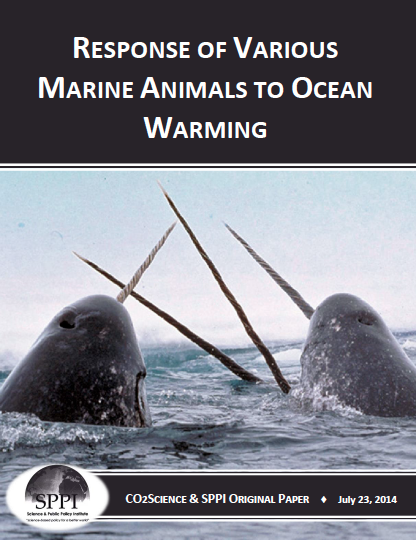News / Nature
Response of Various Marine Animals to Ocean Warming

According to the IPCC, CO2-induced global warming will be net harmful to the world's marine species. This summary examines this hypothesis for various marine animals, presenting evidence in opposition to the IPCC's point of view.
In prefacing their work, Helmuth et al. (2011)1begin by noting "virtually every physiological process is affected by the temperature of an organism's body, and ... with the advent of new molecular and biochemical techniques for studying organismal responses to thermal stress ... there has been a renewed interest in the effects of temperature extremes on the ecology and physiology of organisms given the observed and forecasted impacts of global climate change." Against this backdrop and using a simple heat budget model that was ground-truthed with approximately five years of in situ temperature data obtained by biomimetic sensors, Helmuth et al. "explored the sensitivity of aerial (low tide) mussel body temperature at three tidal elevations to changes in air temperature, solar radiation, wind speed, wave height, and the timing of low tide at a site in central California USA (Bodega Bay)."
According to the six U.S. scientists, the results suggest "while increases in air temperature and solar radiation can significantly alter the risk of exposure to stressful conditions, especially at upper intertidal elevations, patterns of risk can be substantially reduced by convective cooling such that even moderate increases in mean wind speed (~1 m/sec) can theoretically counteract the effects of substantial (2.5°C) increases in air temperature." They also indicate "shifts in the
timing of low tide (+1 hour), such as occur [when] moving to different locations along the coast of California, can have very large impacts on sensitivity to increases in air temperature," noting "depending on the timing of low tide, at some sites increases in air temperature will primarily affect animals in the upper intertidal zone, while at other sites animals will be affected across all tidal elevations." In addition, they report "body temperatures are not always elevated even when low tide air temperatures are extreme," due to "the combined effects of convective cooling and wave splash."
